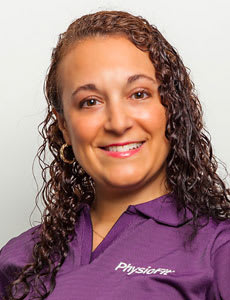
Pregnancy is a challenging time. There are a lot of changes but in the end, it is all worth it. There are postpartum issues that arise that can be well managed with the proper specialist.
- Are you having trouble losing the baby weight?
- Have you ever experienced embarrassing moments of postpartum incontinence?
- Are you fearful of admitting to pain with sex postpartum?
- Ever wonder if you can fix your pelvic floor years after children, isn’t it too late?
These are all issues that so many women experience and although they are all common symptoms, they are not normal.
Pregnancy doesn’t have to lead to a weak pelvic floor. Similarly, pregnancy isn’t a prerequisite for postpartum incontinence.
While settling into motherhood, the changes postpartum can be overwhelming. During this postpartum period, your body will heal, rebuild, and regain your pre-pregnancy shape. But what happens if it doesn’t? That’s when pelvic floor physical therapy can help.
What is Pelvic Floor Physical Therapy?
Pelvic floor health is a sub-specialty of physical therapy. It is physical therapy to restore the pelvic region to a more functional and/or less painful state. Pelvic health physical therapists receive specialized training in the evaluation and treatment of pain and dysfunction related to the pelvis and corresponding muscles, bones and soft tissue structures. Pelvic health Physical Therapists treat women and men with pelvic floor dysfunction.
Women may choose to go see a pelvic physical therapist for a number of reasons: postpartum issues such as back pain, leakage, post-surgical or even diastasis recti.
Pelvic floor physical therapists focus on your long-term health. They work to alleviate pelvic pain and/or weakness that may cause leakage of urine or bowel. Additionally, they will educate you on how to build awareness in what you may be doing in your daily lives that may be making such issues worse.
What Does a Pelvic Floor Exam Entail?
If you’re experiencing back and hip pain, pelvic pain, bladder or bowel dysfunction, a pelvic floor physical exam is a wise next step to identifying the problem.
This exam helps assess your pelvic health and is always beneficial for new moms. However, women at various times are likely to experience some pelvic floor issues which should be addressed by a specialist to stop the symptoms from getting worse. Even children/adolescents can experience issues with their pelvic floor such as bedwetting and pain with tampon use.
A pelvic health exam is similar to any musculoskeletal exam. It might seem scary because it includes an examination of rectal and/or vaginal muscles depending on the issue. This should not be scary. Ask anyone who has had a pelvic health exam and they will tell you that their provider made it very comfortable and it was not painful or scary. The physical therapist will assess posture, breathing, walking, strength, soft tissues and basic functional movements.
When Can the Exam Be Done in the Postpartum Period?
I’m often asked this question. For vaginal deliveries, it is 6 weeks whereas C-sections, 8 to 12 weeks is ideal. However, you may choose to do the evaluation sooner. An internal exam should not be done if you have any repairs, stitches, or tearing. You will have to wait until you recover. You can still be educated in ways that can help prior to this postpartum timetable.
Symptoms
Everyone encounters different postpartum problems. But some of the telltale signs of an issue postpartum include:
Infections, (including bladder, kidney, or uterine infections)
Discomfort or pain during sex
Vaginal discharge
Fecal or urinary incontinence
Pain in the perineal area (between the rectum and the vagina)
Breast problems, such as clogged breast ducts, swollen, or even infection
Constipation and hemorrhoids
Difficulty regaining your pre-pregnancy shape
What does an appointment with a pelvic floor specialist entail?
Your physical therapist will do an evaluation and discuss a treatment plan. It is also the time to discuss how you will achieve your goals.
At PhysioFit Physical Therapy & Wellness, we help women to take control of their bodies so that they can feel strong, confident and empowered. Women don’t needed the added stress about pelvic floor pain or getting hurt while trying to get into shape. We can help you get back to the exercise and activities you love.
 ABOUT THE AUTHOR
ABOUT THE AUTHOR
Kim Gladfelter, MPT, OCS, FAAOMPT
Women's Health Physical Therapy Specialist at PhysioFit Physical Therapy & Wellness
Kim Gladfelter is a physical therapist, Pilates instructor, educator, author, and co-founder of PhysioFit Physical Therapy & Wellness. She is known as a keen, well-rounded expert of healing through movement and women’s health specialist in the Silicon Valley area.
Kim has helped men and women of all ages to stay active and feel their best. She also writes about managing pain in her health columns, blogs and the local Los Altos Town Crier newspaper as well as reaches out to the local community, support groups, schools, libraries, and sports centers to advise and educate on body awareness and therapeutic exercise.

 Los Altos, CA
Los Altos, CA

